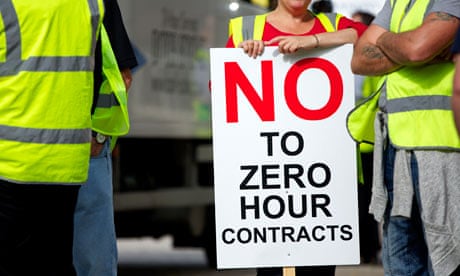What
does the term PRECARIAT mean ?
- In sociology and economics, the precariat is a social class formed by people suffering from precarity, which is a condition of existence without predictability or security, affecting material or psychological welfare.
- Unlike the proletariat class of industrial workers in the 20th century who lacked their own means of production and hence sold their labour to live, members of the Precariat are only partially involved in labour and must undertake extensive "unremunerated activities that are essential if they are to retain access to jobs and to decent earnings".
- Specifically, it is the condition of lack of job security, including intermittent employment or underemployment and the resultant precarious existence.
- The emergence of
this class has been ascribed to the entrenchment of neoliberal capitalism.
Where do
we find these ?
- The precariat class has been emerging in societies such as Japan, where it includes over 20 million so-called "freeters."
- The young precariat class in Europe became a serious issue in the early part of the 21st century.
- It is increasing in
size and range, and spanning no end of occupational categories, from
the fluorescent-jacketed service workers who keep our cities running to
ambitious graduates who take "jobs" in the digital world on
the basis of bogus self-employment.
Any academic work on this ? GUY STANDING
!!!
Who is
GUY STANDING ?
Guy
Standing is a scholar at Soas, who was once a high-up at the UN's International
Labour Organisation. In his vocabulary, to be at the sharp end of modern
capitalism is to be a member of the precariat: a split-off from the
shrinking working class, and one which is growing in size, though not yet in
influence.
- Guy Standing has analysed the precariat as a new emerging social class in work done for the think tank Policy Network.
- In 2014, he wrote another book titled "A Precariat Charter" where he argued that all citizens have a right to socially inherited wealth.
- The latest in the
series is the titled Precariat: The New Dangerous Class where
he proposed basic income as a solution for addressing the
problem.
His
2011 book The Precariat: The New Dangerous Class set out its
story: the term was originally used in 1980s France to denote
temporary and seasonal workers, but now, with labour insecurity a
feature of most western economies, it is the perfect word for a great mass
of people, "flanked by an army of unemployed and a detached group of
socially ill misfits", who enjoy almost none of the benefits won by
organised labour during the 20th century.
In
Standing's view, they
increasingly resemble denizens rather than citizens:
 |
- people with
restricted rights,
- largely living
towards the bottom of a "tiered membership" model of society, in
which a plutocratic elite takes the single biggest share, while other
classes – the salariat, free-ranging "proficians", and what
remains of the old working class – divide up most of what remains.
The analysis of the results of
the Great British Class Survey of 2013, a collaboration between
the BBC and researchers from several UK universities, contended there
is a new model of class structure consisting of seven classes,
ranging from the Elite at the top to the Precariat at the bottom.
- The Precariat class
was envisaged as “the most deprived British class of all with low
levels of economic, cultural and social capital” and the opposite
of “the Technical Middle Class” in Great Britain
in that instead of having money but no interests, people of the new
Precariat Class have all sorts of potential activities they like to engage
in but cannot do any of them because they have no money, insecure
lives, and are usually trapped in old industrial parts of the country.
So
what basically is the PRECARIAT CHARTER ?
- Professor Standing
argues that 800 years after the Magna Carta the time has come for a new
charter representing the interests of those facing job insecurity and
disenfranchisement internationally.
- Guy Standing's previous book "The Precariat" described the 'rapidly growing number of people facing lives of insecurity, moving in and out of jobs that give little meaning to their lives.
- In it he argued for a 'politics of Paradise', in which redistribution and income security are reconfigured in a new kind of Good Society, and in which the fears and aspirations of the Precariat are made central to a progressive society.
- His new book (CHARTER) is an attempt to formulate an agenda that could be the basis of a political movement, based not on a utilitarian appeal to a majority but a vision of what constitutes a Good Society.
- He says as it was
time for the Magna Carta and South Africa's Freedom Charter, it is now
time for a Precariat Charter.
-----------------------------------------------------------------------------------------------------------------------------
